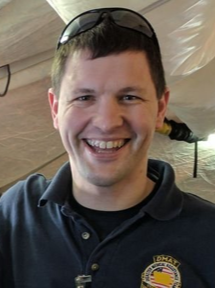



C.A.R.E.S. takes a comprehensive clinical and public health approach to the overall survival for our family friends, and neighbors. Our data shows that early intervention saves lives. Early CPR and early AED use can bring your family and friends back home.
Kayla Riel, Missouri CARES CoordinatorC.A.R.E.S. is a collaborative effort of the Centers for Disease Control and Prevention (CDC) and Emory University, Woodruff Health Sciences with the goal of improving survival from sudden cardiac arrest.
Learn MoreCARES is a collaborative effort of the Centers for Disease Control and Prevention (CDC) and Emory University, Woodruff Health Sciences with the goal of improving survival from sudden cardiac arrest.
The CARES registry is designed to help local agencies identify:
The CARES registry is used by hospitals, EMS agencies, ambulance services, fire departments and researchers to track first responder and EMS response times as well as patient outcomes. This database improves survival by allowing EMS agencies and hospitals to review patient outcomes and recognize every detail of the patient's cardiac arrest event. The data collected includes every detail that occurred on the scene, what happened during transport to the hospital, and what happened in the hospital. Doing this can enact quality improvement projects and create a more standardized approach to caring for those who suffer from sudden cardiac arrest. This project takes a comprehensive clinical and public health approach to overall survival for our family, friends, and neighbors.
CARES data are used to help communities benchmark and improve their performance for OHCA care. CARES allows participating communities to view their own statistics online confidentially and compare their performance to anonymous aggregated data at the local, regional, or national level. CARES automatically calculates local 911 response intervals, delivery rates for critical interventions (e.g., bystander CPR and public access defibrillation [PAD]), and community rates of survival and functional status at discharge, on the basis of each patient's CPC Scale.
An annual report is provided to all participating communities that summarizes local results in comparison to regional and national benchmarks. Tracking performance longitudinally allows communities to better understand which elements of their care are working well and which elements need improvement. Reporting at the state and local levels can enable state and local public health and EMS agencies to coordinate their efforts to target improving emergency response for OHCA events which can lead to improvement in OHCA survival rates.
Return of Spontaneous Circulation throughout 911 system and transport
39408
147736 Total N
39628
146619 Total N
Survival to hospital admission from the Emergency Department
36782
39408 Sustained R.O.S.C.
36258
39628 Sustained R.O.S.C.
Survival through hospital stay and discharged to home, hospice, or nursing facility
13794
39408 Hospital Admission
13403
36258 Hospital Admission
Return of Spontaneous Circulation throughout 911 system and transport
890
3134 Total N
763
2633 Total N
Survival to hospital admission from the Emergency Department
781
890 Sustained R.O.S.C.
672
763 Sustained R.O.S.C.
Survival through hospital stay and discharged to home, hospice, or nursing facility
313
890 Hospital Admission
240
672 Hospital Admission
The basis of C.A.R.E.S. is data. Data collected and entered by agencies accross Missouri help us identify knowledge and practices that improve cardiac arrest outcomes.
Learn MoreOutcome data aggregated across Missouri and the rest of the Nation from participating agencies allows for focused team training and benchmarking and performance measurement.
Learn MoreData, outcomes, and training all help us as community health members and public safety participants to educate and train our communities in CPR, AED use, and other initiatives to improve cardiac arrest survival in our own communities
Learn MoreHelp us continue this program in Missouri to aid our partner 911 medical dispatchers, first responders, EMS agencies, and hospital staff in improving cardiac arrest survival.

Missouri CARES Coordinator

CARES Research Director

CARES Medical Director